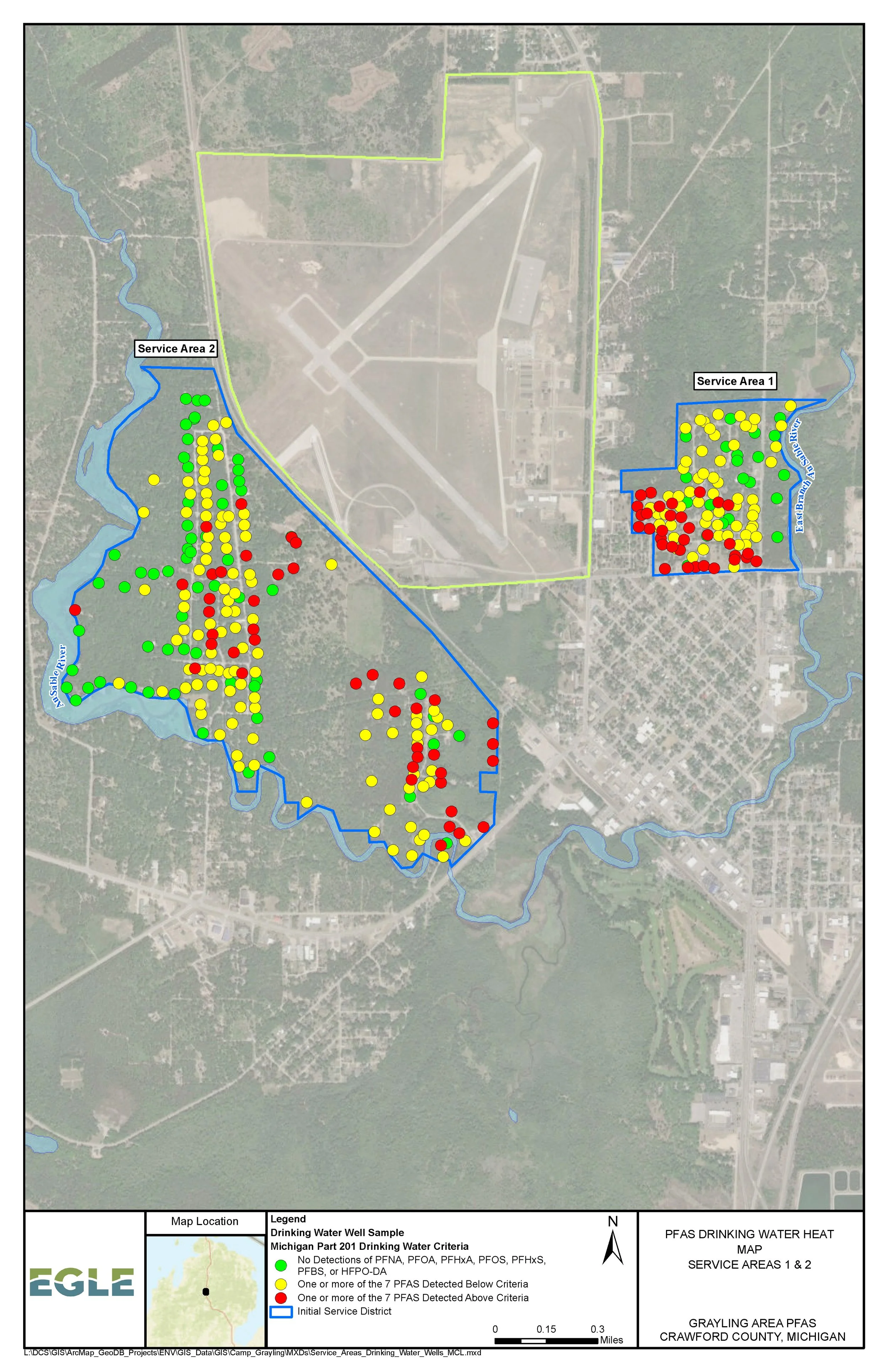Addressing PFAS in Grayling
Clean water is top-of-mind for community leaders nationwide as we address the lasting effects of lead and PFAS contamination. Now Grayling Township, Michigan, is working to address contaminated groundwater due to fire-suppressing chemicals from a nearby Air National Guard base.
PFAS, per- and polyfluoroalkyl substances, can cause cancer and other adverse health effects in humans. They are known as “forever chemicals” because they resist degradation over time. In short, Grayling Township’s groundwater will not be safe for residents to drink for the foreseeable future. Compounding the issue, this rural township has no public water system. The township is eager to establish an alternative water source quickly to provide safe drinking water to the residents affected by the PFAS contamination.
C2AE has been working with Grayling Township since 2019 to identify a solution, lead conversations with state and federal agencies, apply for funding, and put clean water in the homes affected by PFAS contamination. Here’s the latest on this complex situation.
Options Identified
Because of the Air National Guard’s involvement in the contamination of Grayling Township’s groundwater, the United States Department of Defense (DOD) is working on an agreement to support a municipal water system extension that would bring safe drinking water to the parts of Grayling Township that have contaminated drinking water wells. C2AE performed a study of the township’s options and identified two viable alternatives for an extension.
The first alternative would expand the existing Beaver Creek-Grayling Township Utilities Authority (BCGTUA) water system. Although this would be a significant project spanning seven miles, this alternative has a few advantages. Namely, the BCGTUA’s system is new and far away from the PFAS contamination plume, and Grayling Township is already a member of the Utility Authority Board.
The second alternative would expand the City of Grayling’s water system. This solution offers a lower price point and spans a shorter distance than the first option; however, the system is much older and close to the PFAS contamination plume, and it is solely owned and operated by the city.
After C2AE thoroughly investigated both solutions, the recommended alternative was the first option. C2AE developed maps of the extension in GIS and generated cost opinions. Together, C2AE and the township outlined a plan for five areas of construction and prioritized them based on the level of contamination in each.
Funding Obtained
In 2023, C2AE submitted a project plan for areas one and two to the Michigan Department of Environment, Great Lakes, and Energy (EGLE). EGLE placed Grayling’s project into a special funding category called the “Emerging Contaminants in Small or Disadvantaged Communities” grant program. As a result, Grayling Township has received over $25 million in grants from EGLE’s Drinking Water State Revolving Fund and the American Rescue Plan Act. These funds will cover 100 percent of the project costs for areas one and two. The first phase of the project will provide safe drinking water to approximately 300 residents if they choose to connect to the municipal system.
Coming Next
Although the township has made significant progress toward its ultimate goal of safe municipal water for the residents affected by PFAS contamination, there’s still a long way to go. Grayling Township is working on an agreement with DOD to provide for areas three and four.
C2AE and Grayling Township are cooperating with the DOD to reach an agreement, but the DOD must complete an independent engineering analysis before proceeding. C2AE has facilitated public meetings and shared all project records with the agency to streamline these efforts as much as possible.
“The Township is hopeful it can reach an agreement with the Department of Defense soon,” says C2AE Project Manager Erik Cronk, PLA, LEED AP. “These crucial months will define the future of Grayling Township for decades.”
C2AE will share more information as the project moves forward.

